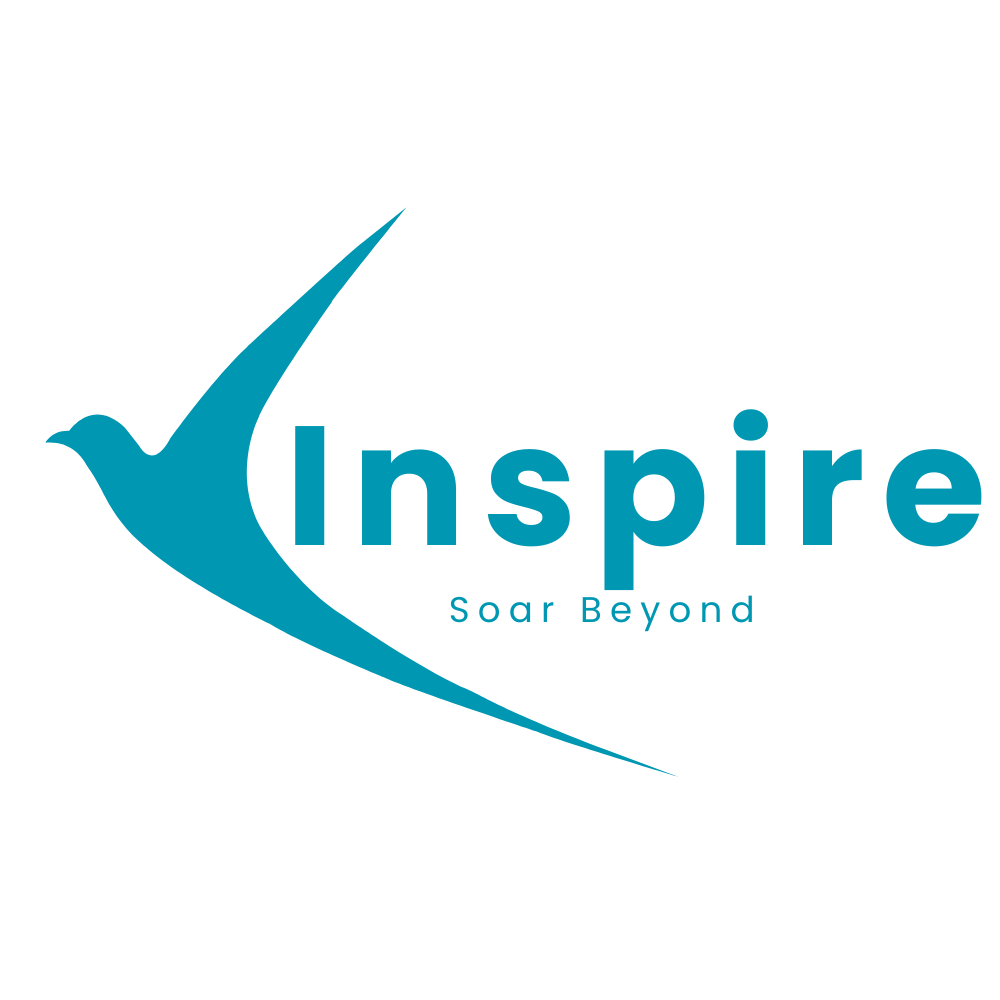Navigating the Licensing Process with the DC Department of Behavioral Health: A Step-by-Step Guide.
By: Zukane Mbuih – CEO – Inspire (PMP/CESP/CCMA/MA/Msc/CPRP/ Clinical Psychology Student)
T. 202-569-6372
E. info@inspireconsultingdc.com
www.iwapp.ai
Are you considering establishing a behavioral health organization in the District of Columbia? Getting licensed with the DC Department of Behavioral Health (DBH) is a crucial step towards providing essential services to the community. However, the licensing process can seem daunting without proper guidance. In this blog post, we’ll walk you through the stages of obtaining licensure with the DBH, from incorporation to the site visit, and how Inspire Consulting can support you along the way.
Stage 1: Incorporation (1-14 days)
The first step in the process is incorporating your organization as a legal entity in the District of Columbia. This involves choosing a business structure, registering with the DC Department of Consumer and Regulatory Affairs (DCRA), and obtaining a tax identification number (EIN) from the Internal Revenue Service (IRS).
- Choose a Business Structure: Determine the most suitable business structure for your organization, such as a corporation, limited liability company (LLC), or nonprofit. Consider factors such as liability protection, taxation, and operational flexibility.
- Register with DCRA: Once you’ve chosen a business structure, register your organization with the DC Department of Consumer and Regulatory Affairs (DCRA). This involves submitting the necessary forms and documentation, paying the required fees, and obtaining a Certificate of Incorporation or Certificate of Formation.
- Obtain a Tax Identification Number (EIN): Apply for a tax identification number (EIN) from the Internal Revenue Service (IRS). An EIN is essential for tax reporting, hiring employees, opening bank accounts, and conducting other business activities.
Stage 2: National Accreditation (3-4 months)
Next, you’ll need to pursue national accreditation, such as from the Commission on Accreditation of Rehabilitation Facilities (CARF) or the Joint Commission. Achieving accreditation demonstrates your organization’s commitment to quality and excellence in behavioral health services.
Key Activities:
- Research Accreditation Requirements: Begin by researching the accreditation requirements of organizations such as CARF or the Joint Commission. Each accreditation body has specific standards and criteria that must be met for accreditation.
- Prepare for Accreditation Process: Develop a comprehensive plan to meet accreditation standards, including policies, procedures, and quality improvement initiatives. Assign responsibilities to team members and establish timelines for completion.
- Implement Quality Improvement Initiatives: Implement quality improvement initiatives aimed at enhancing the delivery of behavioral health services. This may include improving patient outcomes, ensuring patient safety, and enhancing the overall quality of care.
- Document Compliance: Document compliance with accreditation standards by maintaining detailed records of policies, procedures, training programs, and quality improvement activities. Ensure that all documentation is organized and easily accessible for review.
- Submit the Accreditation Application: Once you have completed the necessary preparations, submit your accreditation application to the chosen accrediting body. Be prepared to provide documentation and evidence of compliance with accreditation standards.
- Undergo an Accreditation Survey: After submitting your application, undergo an accreditation survey conducted by representatives from the accrediting body. During the survey, your organization will be evaluated based on compliance with accreditation standards and best practices.
Achieving national accreditation demonstrates to stakeholders, including clients, funders, and regulatory agencies, that your organization meets rigorous standards for quality and excellence in behavioral health services.
By completing Stage 2 of the licensing process, you position your organization for success and demonstrate your commitment to providing high-quality care to individuals in need of behavioral health services.
Stage 3: Staffing and Training (4-5 months)
Building a qualified and competent team is essential for the success of your behavioral health organization. During this stage of the licensing process, focus on hiring staff members who meet the qualifications outlined by the DC Department of Behavioral Health (DBH) and providing them with the necessary training and certifications required for their roles.
Key Activities:
- Develop Job Descriptions: Create detailed job descriptions for each position within your organization, including qualifications, responsibilities, and required certifications. Ensure that job descriptions align with DBH requirements and industry standards.
- Recruitment and Hiring: Begin the recruitment process to fill key positions within your organization. Advertise job openings through various channels, such as job boards, professional networks, and social media platforms. Screen applicants, conduct interviews, and select candidates who demonstrate the skills, experience, and values needed to support your organization’s mission.
- Verify Credentials: Verify the credentials and qualifications of selected candidates to ensure compliance with DBH requirements. This may include verifying educational degrees, professional licenses, and relevant certifications.
- Provide Training and Orientation: Once staff members are hired, provide comprehensive training and orientation to familiarize them with your organization’s policies, procedures, and expectations. Offer training programs on topics such as cultural competency, trauma-informed care, confidentiality, and crisis intervention.
- Obtain Required Certifications: Ensure that staff members obtain any required certifications or licenses for their roles. This may include certifications in first aid, CPR, mental health counseling, substance abuse treatment, or other relevant areas. Assist staff members in obtaining certifications and provide ongoing support for professional development.
- Promote Team Building and Collaboration: Foster a culture of teamwork and collaboration among staff members by promoting open communication, mutual respect, and shared goals. Encourage participation in team-building activities and professional development opportunities to enhance skills and strengthen relationships within the team.
By investing in the recruitment, training, and development of a qualified and competent team, you position your organization for success and ensure the delivery of high-quality behavioral health services to the community.
Stage 4: Compliance Documents (5-6 months)
During this stage of the licensing process, it’s essential to gather all the required compliance documents to ensure that your organization meets the regulatory requirements and standards set forth by the DC Department of Behavioral Health (DBH). Compliance documents provide a framework for delivering high-quality behavioral health services while safeguarding the rights and well-being of clients.
Key Activities:
- Review Regulatory Requirements: Familiarize yourself with the regulatory requirements and standards outlined by the DBH for behavioral health organizations. These requirements may include policies and procedures related to patient care, privacy and confidentiality, emergency preparedness, and quality assurance.
- Develop Policies and Procedures: Develop comprehensive policies and procedures that address the key areas of regulatory compliance. This may include policies related to admission and discharge procedures, treatment planning, medication management, patient rights, and incident reporting. Ensure that policies and procedures are clear, concise, and aligned with best practices and industry standards.
- HIPAA Compliance: Develop a HIPAA compliance plan to ensure the privacy and security of protected health information (PHI). This plan should outline policies and procedures for safeguarding PHI, conducting risk assessments, training staff on HIPAA requirements, and responding to breaches or violations.
- Emergency Management Plan: Develop an emergency management plan to address potential crises or emergencies that may arise within your organization. This plan should include protocols for responding to emergencies such as natural disasters, medical emergencies, or security incidents. Ensure that staff members are trained on emergency procedures and that the plan is regularly reviewed and updated as needed.
- Document Review and Revision: Review and revise all compliance documents to ensure accuracy, completeness, and alignment with regulatory requirements. Seek input from key stakeholders, including staff members, clients, and regulatory agencies, to ensure that policies and procedures reflect current best practices and address the needs of the organization.
- Document Retention and Accessibility: Establish protocols for document retention and accessibility to ensure that compliance documents are maintained in an organized and secure manner. Create systems for storing and accessing documents electronically or in hard copy format, and designate staff members responsible for document management and maintenance.
By gathering all the required compliance documents and ensuring that your organization meets regulatory requirements and standards, you demonstrate your commitment to providing safe, effective, and ethical behavioral health services to the community.
Stage 5: Company Documents (6-7 months)
As you progress through the licensing process with the DC Department of Behavioral Health (DBH), it’s crucial to prepare and submit all necessary company documents to demonstrate the legal and financial stability of your organization. These documents provide essential information about your organization’s structure, governance, and insurance coverage.
Key Activities:
- Articles of Incorporation: Ensure that you have filed articles of incorporation with the DC Department of Consumer and Regulatory Affairs (DCRA) to legally establish your organization as a corporation or LLC. These articles outline key information about your organization, including its name, purpose, registered agent, and duration.
- Bylaws: Develop bylaws that outline the rules and procedures for governing your organization. Bylaws typically address topics such as board composition, officer roles and responsibilities, meeting procedures, and decision-making processes. Ensure that your bylaws are consistent with DCRA requirements and best practices for nonprofit or for-profit organizations.
- Operating Agreement (for LLCs): If your organization is structured as a limited liability company (LLC), prepare an operating agreement that governs the internal operations and management structure of the LLC. This agreement typically addresses issues such as member rights and responsibilities, profit and loss allocation, and decision-making authority.
- Proof of Insurance: Obtain and provide proof of insurance coverage for your organization, including general liability insurance, professional liability insurance (also known as errors and omissions insurance), and any other required insurance policies. Insurance coverage helps protect your organization from potential liability claims and demonstrates your commitment to risk management.
- Other Required Documents: Review the DBH’s licensing requirements and guidelines to identify any additional company documents that may be required for licensure. This may include organizational charts, conflict of interest policies, financial statements, and other relevant documents.
- Submission to DBH: Compile all necessary company documents and submit them to the DBH as part of your licensing application. Ensure that your submission is organized, complete, and meets all requirements specified by the DBH. Be prepared to provide additional documentation or clarification as requested during the review process.
Stage 6: Application Submission (7-8 months)
Compile all the necessary documentation and submit your application for licensure to the DC Department of Behavioral Health. Be prepared to pay any applicable fees and provide additional information or clarification as requested.
Stage 7: Site Visit (8 months)
Once your application is reviewed and preliminarily approved, the DBH may conduct a site visit to assess your organization’s physical environment, policies, and procedures. This visit is a crucial step in the licensing process and helps ensure compliance with regulatory standards.
How Inspire Consulting Can Help
Navigating the licensing process with the DC Department of Behavioral Health can be complex and time-consuming. Inspire Consulting specializes in supporting organizations through this process, providing expert guidance, assistance with documentation preparation, and ensuring compliance with regulatory requirements. Our team has successfully facilitated licensure for numerous behavioral health organizations and can help streamline the process for you.
Contact us today if you’re ready to embark on the journey of becoming licensed with the DC Department of Behavioral Health. Contact Inspire Consulting at 202-627-8968 or email us at info@inspireconsultingdc.com. Let us help you navigate the process and achieve your goal of providing quality behavioral health services to the community.

